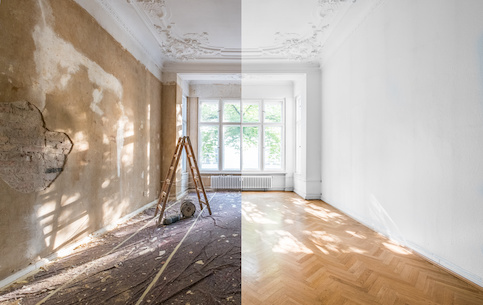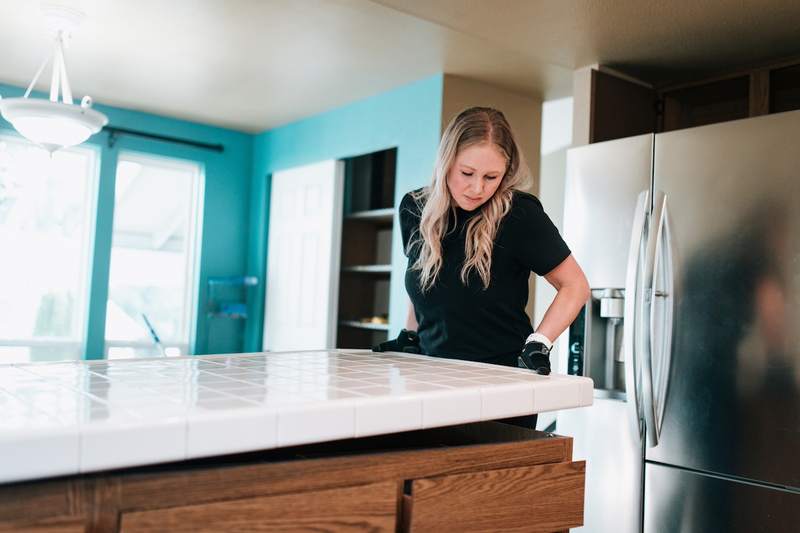The 30-year fixed-rate mortgage is as American as white picket fences. Like apple pie, the 30-year fixed mortgage has been fueling the American Dream for decades.
With all the different types of mortgages and potentially confusing lingo, first-time home buyers may have trouble figuring out which home loan will work best for them, or what the heck a 30-year mortgage even is.
Is a 30-year fixed-rate mortgage a good fit for you? Here’s the lowdown.
What Is a 30-Year Fixed Mortgage?
Let’s break this down: “30-year” refers to the term of the loan, meaning you’ll make monthly payments for 30 years. After that, you’ll own your house. Sounds like a long time, right? These mortgages are good for people who plan on staying in their home long-term or who want a lower minimum monthly mortgage payment.
“Fixed rate” refers to the interest rate. With some mortgages, your interest rate will change after a predetermined number of years. With a fixed-rate mortgage, you never have to worry about the interest rate rising.
See What You Qualify For
Buy A Home
Discover mortgage options that fit your unique financial needs.

Refinance
Refinance your mortgage to have more money for what matters.
Tap Into Equity
Use your home’s equity and unlock cash to achieve your goals.
What Goes Into A 30-Year Fixed-Rate Mortgage?
When you take out a 30-year fixed-rate mortgage, the amount you pay to your lender every month will be determined by a number of components. A 30-year fixed rate mortgage payment will include the following:
- Principal: Part of your mortgage payment will go toward paying down the balance of the loan, known as the principal.
- Interest: Another portion of your monthly payment will pay interest on the loan.
- Escrow: Part of your monthly mortgage payment will go into an escrow account to pay your property taxes and homeowners insurance.
- Mortgage insurance: If your down payment is less than 20% of the purchase price of your home, your mortgage may require you to have mortgage insurance.
Types Of 30-Year Fixed Mortgages
There are several options when it comes to types of loans for a 30-year fixed mortgage. Each offers its own benefits and drawbacks, so make sure you understand your options so that you can find the best loan for your situation.
Conventional 30-Year Fixed Mortgage
A conventional 30-year fixed mortgage is one that’s not backed by the government. Conventional loans typically have stricter requirements to qualify than government-backed loans. For example, most lenders want a credit score of at least 620 to qualify for a conventional loan.
FHA 30-Year Fixed Mortgage
FHA 30-year fixed mortgages are backed by the Federal Housing Administration. They typically involve lower down payments and more lenient requirements than that of other loan types, often making them a good choice for first-time home buyers.
VA 30-Year Fixed Mortgage
VA 30-year fixed mortgages are government-backed loans offered to military servicemembers, veterans and surviving spouses. The VA has no set credit requirements, though most lenders do.
Find out if a 30-year fixed loan is right for you.
See rates, requirements and benefits.
30-Year Fixed Mortgage Rates
There are several factors that can influence 30-year fixed mortgage rates. External factors such as market conditions have a major impact on mortgage rates. Additionally, several aspects of your personal finances can also affect the mortgage rate you receive. These include:
- Credit score
- Home price
- Down payment
- Location
15-Year Vs. 30-Year Fixed Mortgages
Next to a 30-year mortgage, a 15-year mortgage is another popular loan choice among homeowners. Which one is right for you? It depends on your situation. The 15-year fixed-rate mortgage is good if you want to pay off your mortgage faster. The 15-year has a higher monthly payment, but you’ll pay much less in interest than with a 30-year term – not only does a 30-year have a higher interest rate than a 15-year, but you’ll also accrue more interest because the loan takes twice as long to pay off.
Fixed-Rate Vs. Adjustable-Rate Mortgages
You also might consider an adjustable rate mortgage (ARM). ARMs are 30-year loans that can offer lower payments and fixed interest rates for the first few years of the loan. Then, after a specified amount of time, your rate will change every 6 months to a year based on the market, with caps in place for the maximum rate you can have.
ARMs can be good for people who don’t think they’ll stay in their home long-term, but they might feel like a bit of a gamble, as it’s hard to know whether your rate will go up or down after the fixed period has passed.
How Do I Know What’s Right for Me?
All the different choices you’ll have to make when you’re in the market for a home loan can make your head spin. Luckily, doing a little bit of research can help narrow down your choices.
Do you only plan on staying in your home for a few years? Do you have a big financial event coming up, like a kid going to college? If so, you might want to look at an ARM or a 15-year fixed.
Is paying off your house quickly important to you, even if it means you have to shoulder a higher monthly payment? Again, a 15-year fixed could be a good fit for you.
Find out if a 30-year fixed loan is right for you.
See rates, requirements and benefits.
Pros And Cons Of A 30-Year Fixed Mortgage
A 30-year fixed-rate might be just right for your particular financial situation. Just consider the pros and cons:
Pros Of A 30-Year Fixed Mortgage
- Lower monthly payment: Your loan balance will be split up over 30 years instead of 15, so you’ll have to pay less each month than with a 15-year mortgage.
- Greater flexibility: You don’t have to worry about a high monthly payment, but you can always pay more than your required minimum to pay off your mortgage faster.
- Predictability: No need to worry about rising interest rates.
Cons Of A 30-Year Fixed Mortgage
- Pay more in interest: Since the loan takes 30 years to pay off, you’ll end up paying more in interest over time compared to a loan with a shorter term
- Not ideal if you plan on moving in 5 or 10 years: You may end up with a higher rate than you could have gotten with a different loan if you’re only there for a short amount of time.
- Takes longer to build equity: Only a small amount of your monthly payment goes to the principal in the first few years of your mortgage, so it may take longer to build equity.
The Bottom Line
30-year fixed-rate mortgages offer a solid, conservative option for cautious or long-term borrowers who want to be certain they can make every payment. Ultimately, it’s going to be up to what works best for your financial situation, goals and future plans. Knowing the basics can help take some of the headaches out of the home buying process.
Find A Mortgage Today and Lock In Your Rate!
Get matched with a lender that will work for your financial situation.

Victoria Araj
Victoria Araj is a Staff Writer for Rocket Companies who has held roles in mortgage banking, public relations and more in her 15-plus years of experience. She has a bachelor’s degree in journalism with an emphasis in political science from Michigan State University, and a master’s degree in public administration from the University of Michigan.












